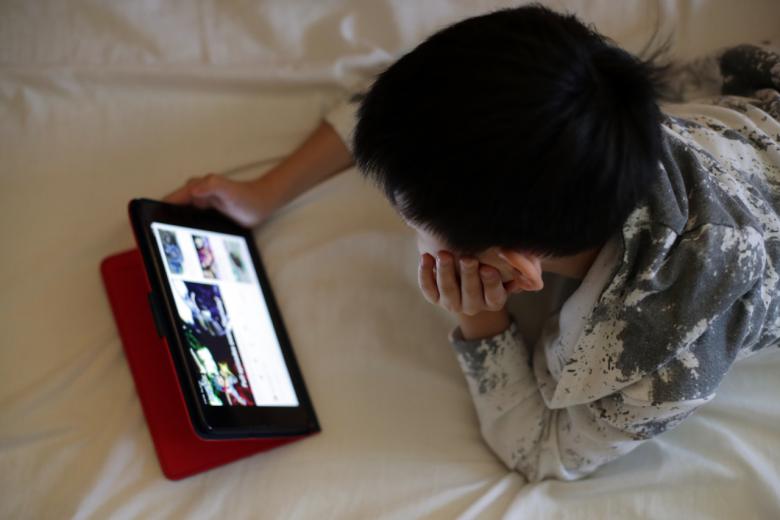SINGAPORE - Nine in 10 children under the age of two here are allowed daily screen time without adult supervision and that can lead to problems like language delays and attention deficit, a study has found.
Infants are regularly exposed to content on electronic screens from as young as 6 months - often as a convenient pacifier, said the study titled Growing Up In Singapore Towards Healthy Outcomes or Gusto.
Gusto is Singapore's largest birth cohort study and was conducted over the last 10 years. It aims to understand how conditions in pregnancy and early childhood influence the health and development of women and children.
It is published by the Centre for Holistic Initiatives for Learning and Development or Child, set up by Lien Foundation and National University of Singapore medical school.
One key finding suggests that high levels of screen time for children below two is linked to a sedentary lifestyle that often leads to obesity, high blood pressure and poorer mental health later in a child's life.
Increased screen time for children between the age of one and two can also lead to problems in executive functions when the child gets older.
Executive functions refer to a set of brain processes related to the ability to focus, remember instructions, and perform multiple tasks successfully.
Screen time refers to activities done on electronic devices, such as phones, tablets, computers, and televisions.
The higher the amount of screen time between the ages of one and 18 months, the more difficulties were observed in attention, language, and social skills in later childhood, the study found.
Professor Lee Yung Seng, co-director of Child and head of paediatrics at NUS Medicine said: "This is a worrying trend and a key public health concern that we can, and ought to address, especially in this digital age where increased digital media use in infants and toddlers is ubiquitous."
The study recommends that children under 18 months are not allowed any unsupervised screen time.
Children between 18 to 36 months can have limited unsupervised screen time of not more than one hour a day, it added.
This is similar to guidelines around the world, said Dr Evelyn Law from the department of paediatrics at NUS Medicine.
And there are other studies that show how a toddler's brain is sensitive to many different factors in a home environment, including digital media, Dr Law added.


